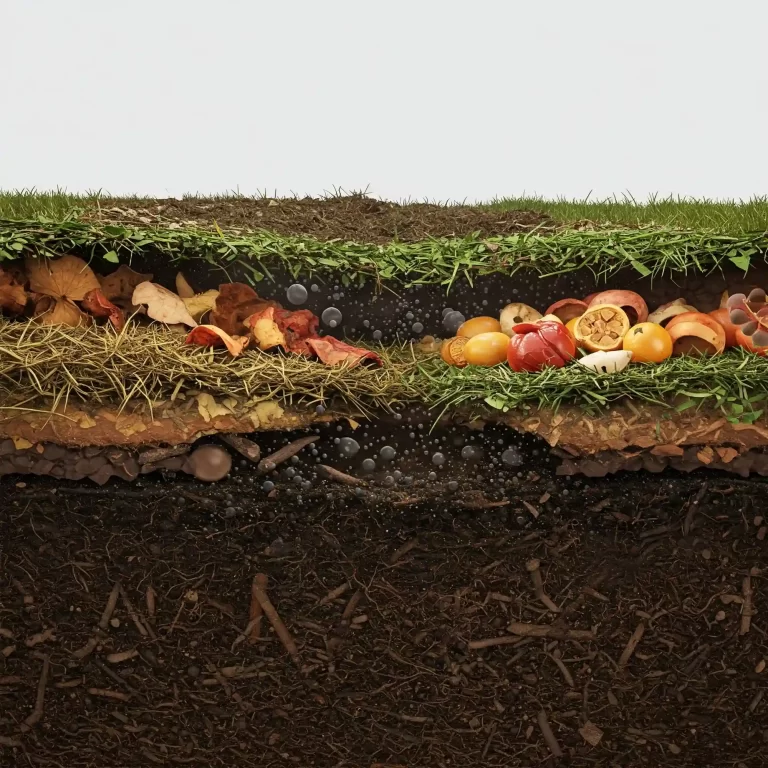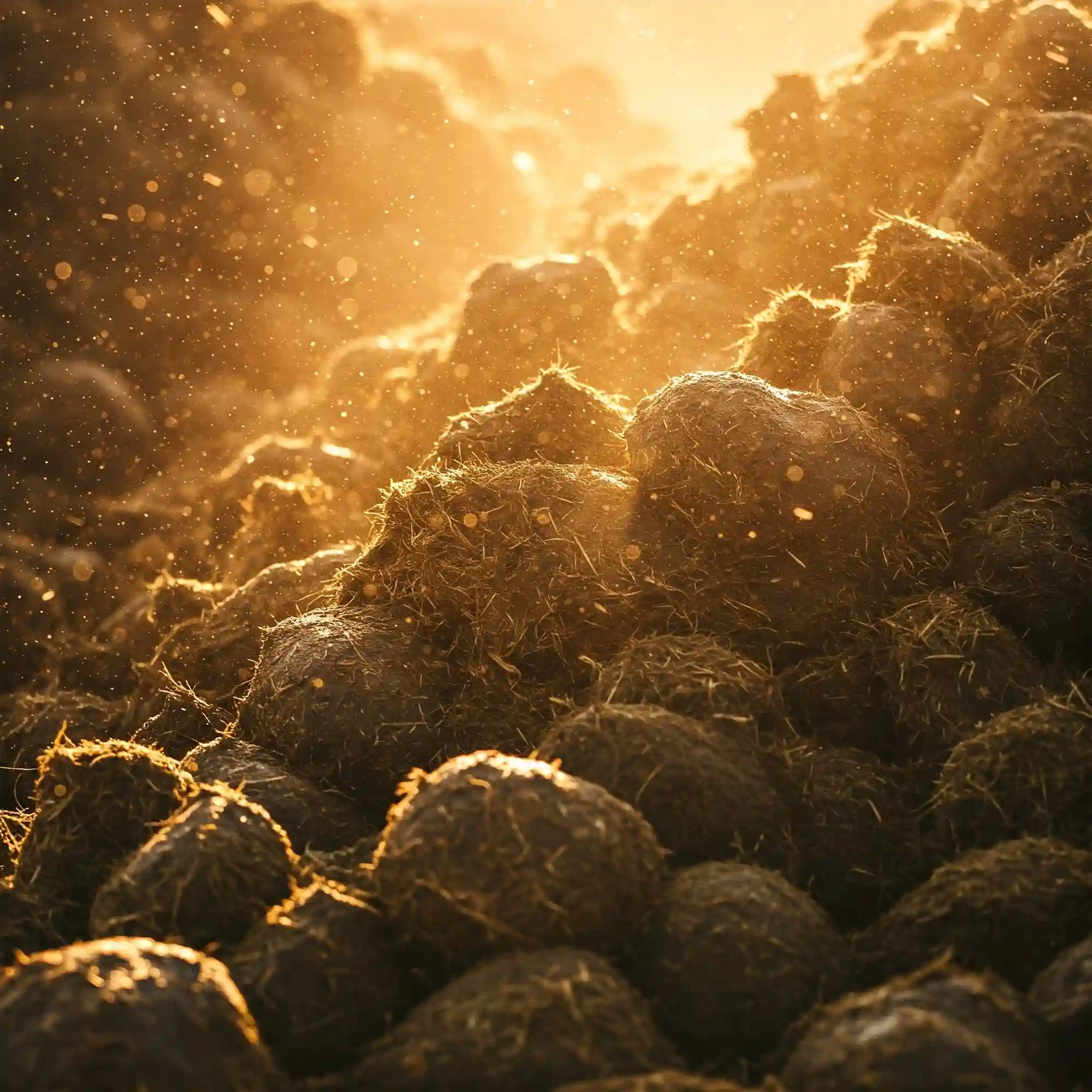Key Takeaways:
- Uncover the link: Explore how mindful composting fosters a connection with nature and deepens your appreciation for the cyclical processes of life and death.
- Find peace in the process: Discover how the act of composting can be a form of mindfulness practice, offering stress relief and a sense of accomplishment.
- Nourish your garden and soul: Learn practical tips on how to integrate mindfulness into your composting routine, enriching your relationship with nature and the environment.
What is Composting and Mindfulness: Connecting with the Great Outdoors?
Composting is the natural process of transforming kitchen scraps, garden trimmings, and other organic materials into nutrient-rich soil amendment. It’s a fantastic way to recycle organic waste, reduce landfill burden, and boost the health of your plants.
Mindfulness, on the other hand, is the practice of paying attention to the present moment without judgment. It involves focusing on your thoughts, feelings, and bodily sensations in a non-reactive way.
Composting and mindfulness might seem like an unlikely pairing, but hear us out! When you approach composting with a mindful perspective, it becomes an opportunity to connect with nature on a deeper level, fostering a sense of peace and well-being.
Embracing the Cycle: How Composting Connects You to Nature
Composting embodies the eternal cycle of life, death, and rebirth that exists in nature. Food scraps and garden waste, once considered “waste,” are given a new life as they transform into nutrient-rich compost. This process mirrors the way nature decomposes fallen leaves and dead organisms, returning essential nutrients to the soil to fuel new life.
By engaging in mindful composting, you become an active participant in this cycle. You’re not just disposing of waste; you’re contributing to the fertility of the earth, nurturing future generations of plants and creating a healthier ecosystem.
Here are some ways mindful composting fosters a connection with nature:
- Appreciating the beauty of decomposition: Observe the diverse life forms, like worms and microbes, that break down organic matter. Witness firsthand the transformative power of nature.
- Connecting with the seasons: Notice how the composting process changes with the seasons. Warmer temperatures accelerate decomposition, while cooler temperatures slow it down.
- Honouring the interconnectedness of life: Realize that your actions, from composting to consuming food, have an impact on the environment. Embrace your role as a steward of the earth.
Cultivating Peace Through Mindful Composting
Composting isn’t just about creating healthy soil; it can also be a powerful tool for mindfulness and stress reduction. By focusing on the present moment and engaging your senses, you can transform a seemingly mundane task into a source of peace and inner calm.
Here are some tips for practicing mindful composting:
- Slow down and savour the experience: Take a few deep breaths before starting. Be present in the moment and focus on the task at hand.
- Engage your senses: Notice the different textures, colours, and smells of the materials you’re composting. Appreciate the unique qualities of each item.
- Set intentions: Before adding materials to your compost bin, take a moment to set an intention for the final product. This could be nourishing your garden, supporting local pollinators, or simply returning nutrients to the earth.
- Observe without judgment: Don’t get discouraged if you encounter challenges like pests or odours. Instead, acknowledge them objectively and move on.
Benefits of Mindful Composting
| Benefit | Description |
|---|---|
| Stress reduction | Focusing on the present moment and engaging in repetitive tasks can be calming and help reduce stress. |
| Increased connection to nature | Mindful composting allows you to appreciate the natural world and your role within it. |
| Enhanced sense of well-being | Contributing to the environment and witnessing the transformation of waste can bring a sense of satisfaction and purpose. |
Practical Tips for Mindful Composting: A Step-by-Step Guide
Ready to get started with mindful composting? Here’s a step-by-step guide to help you incorporate mindfulness into your composting routine:
- Gather your materials: Choose a designated area for your compost bin, away from direct sunlight and easy to access. Collect organic materials like kitchen scraps, garden trimmings, and yard waste.
- Set up your bin: Choose a well-aerated bin that allows for proper ventilation and moisture drainage. You can purchase a compost bin or build your own.
- Mindfully sort your materials: As you sort your scraps, be present in the moment. Notice the colours, textures, and aromas of different items. Appreciate the abundance of organic matter available for composting.
- Layer your compost: Alternate between “brown” materials (carbon-rich, like dry leaves or shredded cardboard) and “green” materials (nitrogen-rich, like fruit and vegetable scraps) to create a balanced mix. As you layer the materials, be mindful of the different textures and how they interact.
- Maintain moisture: Regularly check the moisture content of your compost. Ideally, it should feel like a damp sponge. Add water if it’s dry or turn the pile to distribute moisture evenly. Observe how the moisture content changes with the weather and adjust your watering habits accordingly.
- Observe and learn: Regularly check on your compost bin and observe the decomposition process. Notice the changes in colour, texture, and odour. Witness the fascinating ecosystem of microorganisms that break down the organic matter.
- Be patient: Composting takes time, so don’t get discouraged if you don’t see immediate results. Embrace the process and enjoy the journey of transformation.
Common Problems and Solutions in Composting
| Problem | Possible Cause | Solution |
|---|---|---|
| Unpleasant odours | Lack of oxygen or too much nitrogen-rich material | Add more brown materials like leaves or shredded cardboard to balance the carbon-to-nitrogen ratio. Ensure proper ventilation for better airflow. |
| Pests like fruit flies | Food scraps exposed to air | Bury food scraps under other materials in the compost bin. Keep the bin lid closed tightly. |
| Slow decomposition | Lack of moisture or improper layering | Check the moisture content and add water if needed. Turn the compost pile regularly to aerate it and ensure proper mixing of materials. |
Conclusion: Cultivating Peace and Connection Through Mindful Composting
Composting offers a unique opportunity to connect with nature, cultivate mindfulness, and find peace in the everyday act of transforming waste into valuable resources. By slowing down, engaging your senses, and appreciating the cyclical processes of life and death, you can transform a seemingly mundane task into a source of well-being and connection.
So, grab your kitchen scraps, find a quiet corner of your garden, and embark on a journey of mindful composting. You might be surprised at the sense of peace and connection it brings to your life, while simultaneously contributing to a healthier planet for all.

